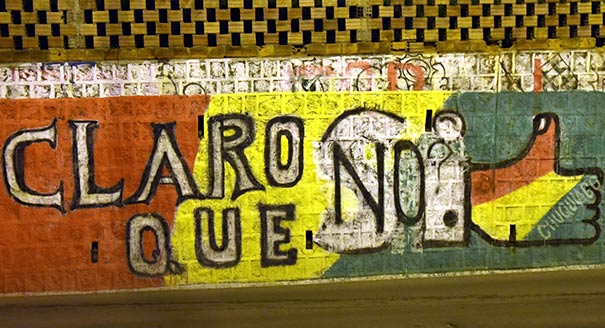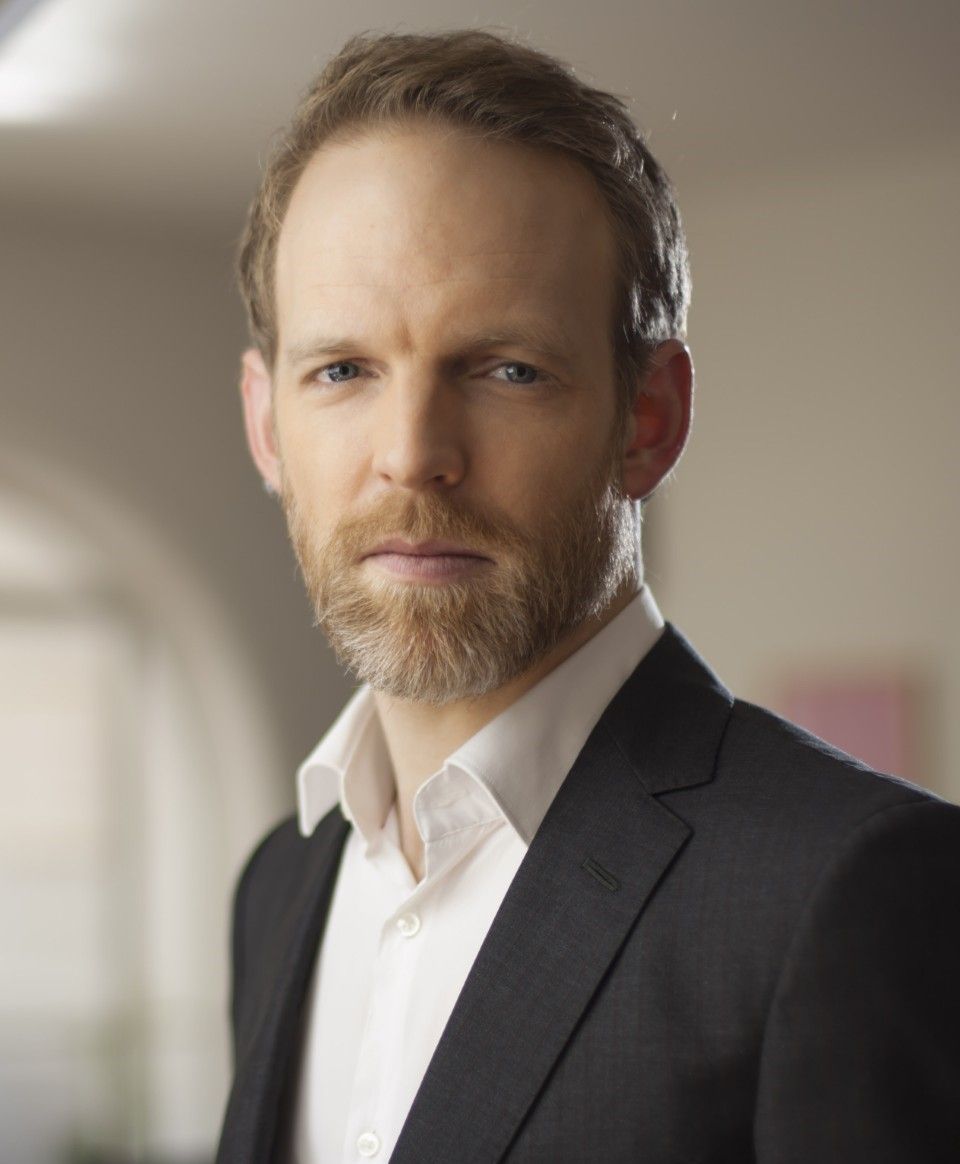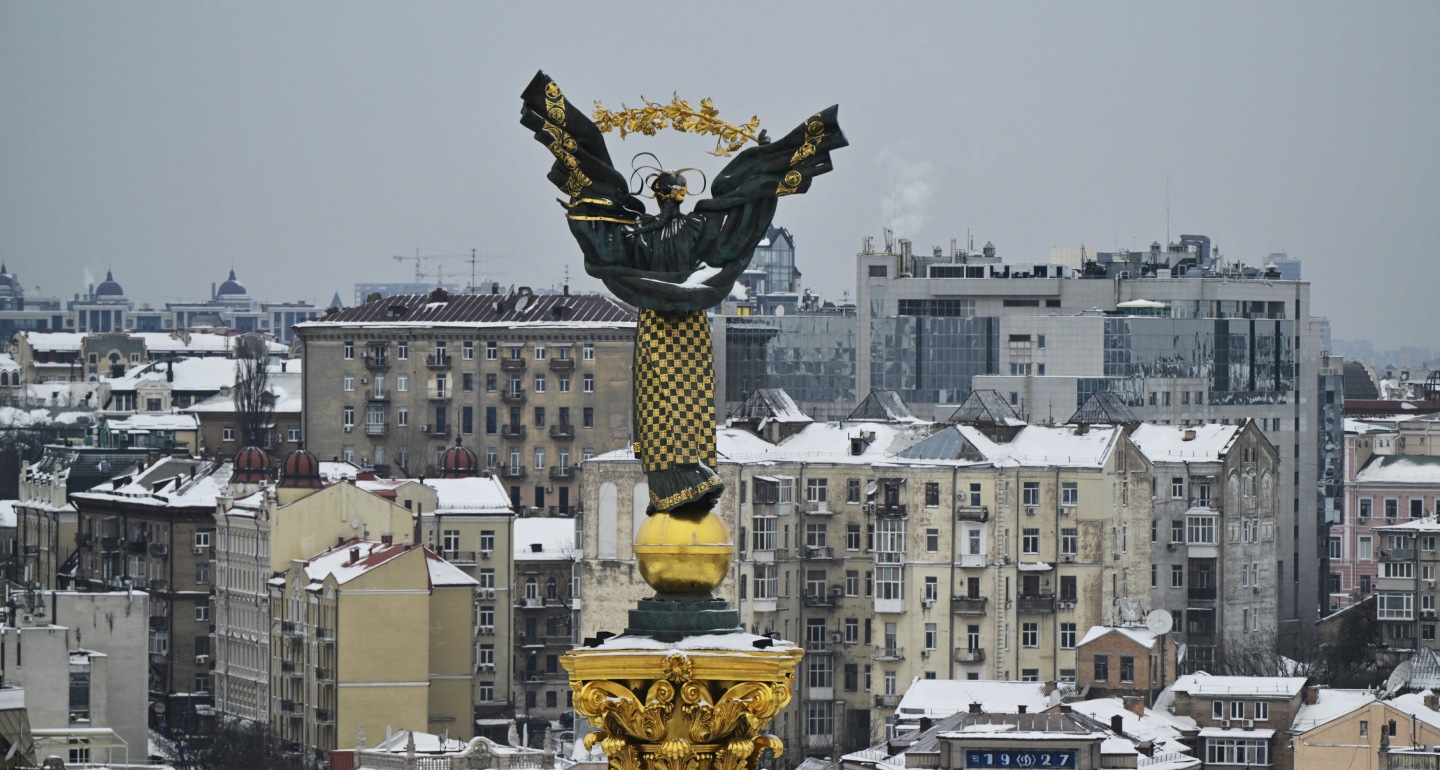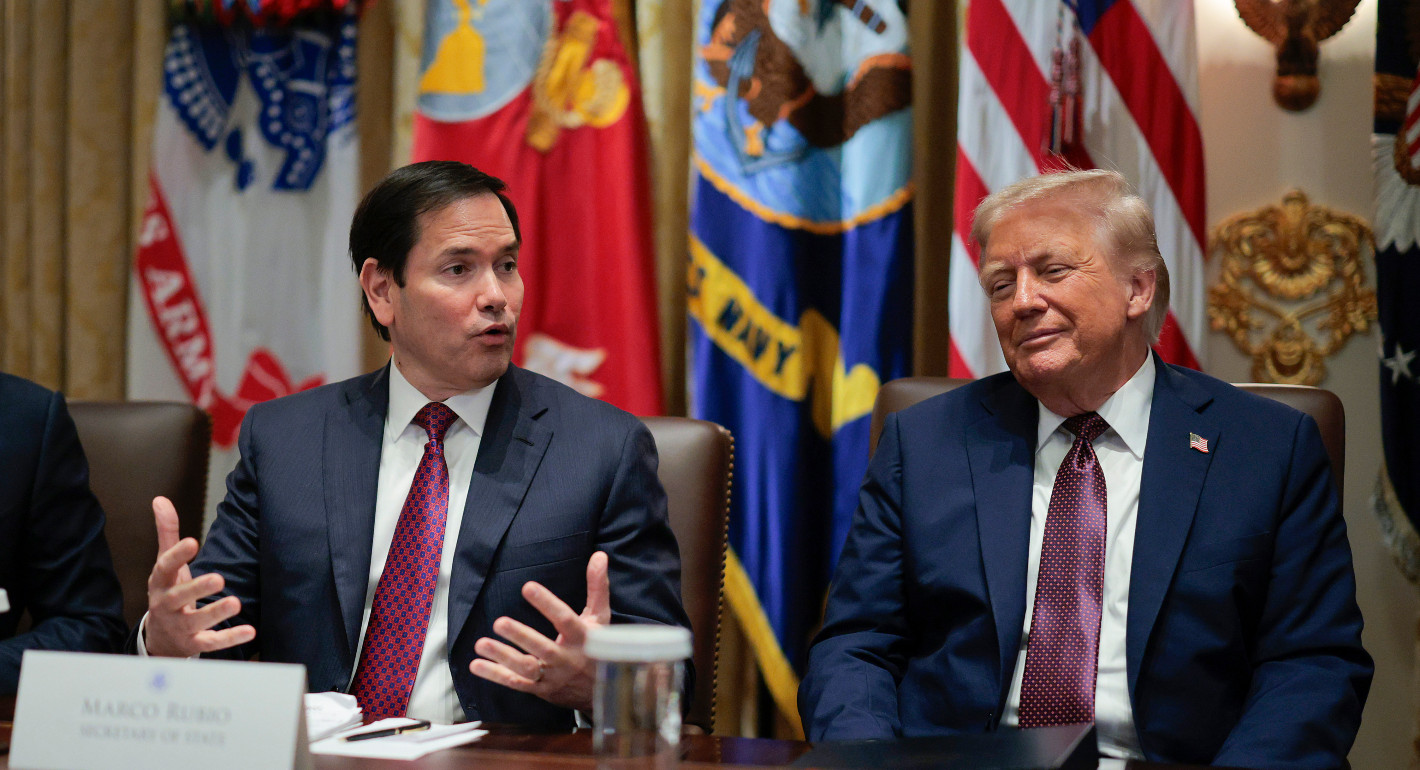Oliver Stuenkel, Adrian Feinberg

Source: Getty
Bolivia’s Democracy at Risk: What Role for External Actors?
The outlook for Bolivia’s democracy is bleak, and there is considerable potential for a return to political instability.
This publication is from Carnegie’s Rising Democracies Network.
Bolivia’s first indigenous president, Evo Morales, appears to be moving in a more authoritarian direction. Neighboring countries are currently unable to play a constructive role in preventing this from happening.
The country presents a test case for Latin American states’ commitment to protect democracy in the region. They will need to coordinate more effectively through Latin American regional bodies if they are to pass this test.
Democracy Challenged
The outlook for Bolivia’s democracy is bleak, with considerable potential for a return to political instability.
Until recently, Evo Morales was hailed as an example of a progressive and responsible left-wing leader in Latin America. Despite supporting Venezuela even as the regime in Caracas turned authoritarian, Morales was generally seen as a moderate who was concerned about Bolivia’s long-term development. His capacity to promote the role of the indigenous population—60 percent of Bolivians—in the country’s decisionmaking processes turned him into an internationally popular reformer. Morales brought social inclusion, relative stability, steady economic growth, and falling poverty levels. Even opposition figures readily recognize his remarkable capacity to get things done in a country that has seen far too many economic crises to count and more than 150 changes of leadership since it gained independence in 1825.
However, other recent trends threaten to undo Morales’s otherwise positive legacy. He is exerting tighter control over the judiciary and the opposition media. And even more significantly, he has chosen to ignore the result of a 2016 referendum that should have prevented him from seeking a fourth presidential term.
Other concerns are mounting about the country more broadly. After years of economic expansion and relatively prudent macroeconomic management, growth has slowed considerably, limiting the government’s capacity to co-opt Bolivia’s numerous political factions. At the same time, more radical voices are gaining power over pragmatic technocrats. And the opposition remains ineffective. Today, it looks like little more than a throwback to the pre-Morales days, and has failed to articulate a compelling vision for Bolivia’s future.
Toward a Fourth Term?
Bolivia’s constitution allows a president to serve only two consecutive terms. Morales has been in power for three, but the courts ruled that his first term—from 2006 to 2010—did not count because the country had adopted a new constitution in 2009. After winning his third term in 2015, and with a sense that the economic environment could worsen, Morales called a referendum in 2016 to pave the way for an unprecedented fourth term.
Morales’s defeat in that referendum was in line with a regional wave of discontent with incumbents that has in recent years pushed governments out of power in many South American countries. Paradoxically, the loss can be explained by both good and bad policies that Morales introduced.
On the good side, the government successfully reduced poverty and illiteracy, but that produced an emerging middle class no longer content with paternalistic policies that gave them little say in decisionmaking processes. Instead, they began to desire better public services and became more interested in political participation. Part of this group, many of whom are previous Morales supporters, preferred to maintain term limits precisely because their economic empowerment had made them more politically aware and concerned about democracy. Graffiti in the city of El Alto sums up the combination of gratitude and voters simply being tired of Morales: “Thank you, but no.”
Conversely, a water crisis in several cities, corruption scandals, and the government’s increasingly blatant attacks on the opposition media helped generate a notion that Morales’s Movement for Socialism (MAS) had become too accustomed to being in power, allowing well-connected, yet incompetent people to fill the ranks of government.
To Morales personally, however, the referendum defeat is said to have come as a shock, with some policymakers privately suggesting Morales had surrounded himself with too many fawning yes-men and was acting as if he would be president for life. At a rally late last year, Morales offered a hint of his plans: “We aren’t renters. As social movements, we have come to the presidential palace to stay for all our lives.”
That may explain why, in the aftermath of the referendum, the government stepped up the rhetoric against opposition media and embraced an “us vs. them” narrative that suggested a plot was under way to prevent Morales from staying in power.He argued that the opposition was playing dirty and that therefore the referendum did not represent a decisive verdict.In the government-produced documentary The Cartel of the Lie, a large number of journalists and newspapers were described as acting on behalf of foreign interests and as actively conspiring against the government. And as the president said after the vote, “Unfortunately, the Bolivian people have been tricked, have been lied to, confused, by the right.” He cited the opposition actively covering an episode involving Morales’s girlfriend and their supposed son, as well as suggestions that she had obtained public contracts working for a Chinese firm. Meanwhile, Vice President Álvaro García Linera threatened to imprison a series of prominent Bolivian journalists for supposedly lying in their coverage of the case. Unlike the Venezuelan regime, however, the government ultimately decided not to jail journalists.
Several observers now expect the government to find ways around the two-term limit. Two options are currently seen as most likely. Morales could resign six months prior to the end of his term and ask the courts to confirm that this interruption permitted him to run for a fourth term. The second option would be to hold another referendum, this time supposedly under “fair circumstances”—which, critics fear, would entail attempts to intimidate the opposition media. Yet with the economy slowing further (GDP growth decreased from 6.8 percent in 2013 to 4 percent in 2016, while efforts on reducing inequality and poverty stagnated) and discontent possibly growing, there is fear among the MAS leadership that a second defeat in a referendum would make Morales’s renewed candidacy impossible.
The legal moves would be made easier because the Morales government has weakened the independence of the judiciary. Bolivia’s new constitution, approved in 2009 under somewhat dubious circumstances (many opposition members were not present during part of the 2007 Constituent Assembly convened to draft the document), has allowed the Morales government to exert considerable influence over the judiciary. For example, after a series of resignations in 2009 of judges critical of the constitutional changes, the government did not appoint judges to fill the vacancies, thus giving more power to those aligned with the government.1 The government sees the judiciary as sufficiently malleable that it would allow Morales to run for a fourth term.
MAS bigwigs also know that the party’s only chance to remain in power is to bet on Morales, even if that implies violating the constitution. The entire MAS party structure is built around the president, with very little space for potential successors. Morales himself reduces this space for any new centers of power by reshuffling his cabinet frequently. And since absolute loyalty is required to rise within the party structure, more pragmatic voices are increasingly rare. This has contributed to the departure of technocrats and the growing influence of hard-core ideologues.
The opposition has been ineffective and unable to offer a counternarrative or a viable contender to challenge Morales. This is partly because the political process since Morales came to power has become far more inclusive, more diverse, and therefore more complex. But opposition figures are also often vague when it comes to discussing how to cement the progress made under Morales, and how to tackle the country’s persistent problems.
Moreover, several potential candidates represent the Bolivia of the past. For instance, Carlos Mesa, a public intellectual, could be a candidate, and friends confide he is itching to correct his place in history after his botched presidency from 2003 to 2005. But figures like him only have a very limited capacity to engage the country’s large indigenous population. For many recently empowered groups in the countryside and in smaller cities, the urban elites of La Paz and Santa Cruz are seen as aloof, even though there, too, people readily voice criticism and frequently describe the current government as corrupt.
Indecisive Regional Responses
The response from other Latin American governments to these worrying trends in Bolivia has been insipid and equivocal. The mechanisms and normative frameworks established in the region to protect democracy are designed to prevent high-profile ruptures such as military coups. They are less tailored for preventing the slow erosion of democracy led by the incumbent—the way in which Bolivian democracy is now threatened.
Since the region democratized in the 1980s and 1990s, an increasingly sophisticated normative framework to strengthen democracy has developed in Latin America. From the adoption by the Organization of American States (OAS) of Resolution 1080 in 1991, which requires the organization’s secretary general to convene the Permanent Council if a coup d’état has taken place in the region, to the creation of the subregional trade bloc Mercosur and to commitments within the Union of South American Nations (UNASUR), governments in the region now have a menu of policy options to deploy when democracy is threatened. In several instances, these mechanisms have had a tangible impact—playing a role in avoiding and reversing democratic ruptures in places like Paraguay (1996, 1999, and 2012), Venezuela (2002), and Honduras (2009).
Yet while these normative frameworks work reasonably well when it comes to anti-democratic threats against an incumbent government, they are far less useful when it is those already in power that menace democracy. The most extreme example is the slow but steady slide toward autocracy in Venezuela, which neighboring countries have been unable to stop or slow down. Governments agreed to regional democracy mechanisms as a protection against militaries, not to restrict their own room for maneuver.
And while Brasília often took the lead on resolving regional political crises during the first decade of the twenty-first century, Brazil’s current political and economic crisis has led to a power vacuum in Latin America. No national leader has been capable of articulating a broader, shared vision for the continent. In practical terms, this means that the regional response to the crisis in Venezuela has been timid and ineffective.
Unlike the situation in Venezuela, where meaningful dialogue between the regime and the opposition is no longer viable, regional engagement could still have a constructive impact in Bolivia—even though it does not seem like a priority in capitals in the region at this point. As this engagement has not been forthcoming, the situation is becoming harder to solve. The constitutional changes that have marked the Morales presidency have been contested from the start, and have called for some kind of external involvement.2Yet given their own internal challenges, Argentina, Brazil, Peru, and other states have invested little effort in trying to safeguard democracy in Bolivia.
There are undoubtedly challenges facing outside actors trying to play a positive role in Bolivia. A powerful narrative about how Bolivia has been exploited and treated unfairly in the international system dominates national politics. Nationalism and support for non-interference are strong even by Latin American standards. Anti-Americanism is rife and has been further strengthened by Morales’s nationalist rhetoric. In 2009, USAID’s democracy-related activities were wound up in the context of a worsening bilateral relationship with the United States.3 Bolivia also expelled the U.S. ambassador and U.S. Drug Enforcement Agency in 2008. European influence has suffered since EU governments forced Evo Morales’s presidential plane to land in Vienna in 2013 due to the wrong assumption that Edward Snowden was on the plane.
Bolivians’ suspicions about outside interference apply to non-Western powers, too. A long-standing territorial dispute with Chile is unlikely to be resolved, and in popular discourse Paraguay and Brazil are seen to have gradually usurped Bolivian territory using unfair means. Brazil’s demand for Bolivian gas limits the former’s room for maneuver. Bilateral pressure from Brazil can easily stir up anti-Brazilian sentiments.
When Morales decided in 2006 to nationalize Brazilian petroleum company Petrobras’s investments in the country—and to make a media spectacle by sending troops into the company’s sites—the response of the Brazilian administration under Luiz Inácio Lula da Silva was remarkably restrained. As then foreign minister Celso Amorim argued at the time:
We do not believe in a relationship marked by dominance and imposition: relationships need to be mutually beneficial. . . . I think that . . . a government led by a people that reach power after years—if not centuries—of being oppressed, can tend, at times, to engage in verbal exaggerations. Who am I to judge? What matters is that we find practical solutions.
President Lula, in the same way, went out of his way to stress the mutual benefits: “We will not retaliate against a country that is much poorer and hungrier than Brazil.”
In this context, the only solution seems to lie in the multilateral realm. This is slow and potentially frustrating, and much depends on broader regional dynamics. The greater urgency of the Venezuela crisis and the interim nature of Brazil’s government until 2019 make it unlikely that UNASUR, the OAS, or Mercosur (which Bolivia may soon join) will prioritize the situation in La Paz. At this stage, therefore, the best way forward may be to promote a broader regional debate about what kind of additional regional mechanisms could be created to better address potential crises such as the one on display in Bolivia. That could include more stringent and periodic peer reviews, though these would be no panacea. Given the tremendous risk that external pressure could backfire, actors from outside Latin America should keep a low profile—the initiative should always originate and be led by regional actors such as Brazil, Argentina, Mexico, and Chile.
Prioritizing regional integration would certainly help strengthen Latin American governments’ political interest in neighboring countries’ domestic affairs—a matter that today often remains a niche topic discussed only among foreign ministries. The reduction of tariff and nontariff barriers, spending more on physical integration, efforts to build regional media platforms, and cooperation between universities and other civil society institutions would all strengthen the still surprisingly limited interaction between Latin American states. These steps would help create the conditions for a common political community.
But until the community becomes more integrated, governments are unlikely to have much incentive to do more to halt anti-democratic regressions such as Bolivia’s.
Oliver Della Costa Stuenkel is an associate professor of international relations at the Getúlio Vargas Foundation in São Paulo, Brazil, where he coordinates the São Paulo branch of the School of History and Social Science and the Executive Program in International Relations. He is a member of Carnegie’s Rising Democracies Network.
The Carnegie Endowment is grateful to the Robert Bosch Stiftung, the Ford Foundation, and the UK Department for International Development for their support of the Rising Democracies Network. The opinions expressed in this article are the responsibility of the author.
Notes
1 Jonas Wolff, “Challenges to Democracy Promotion: The Case of Bolivia,” Carnegie Endowment for International Peace, March 2011, 3.
2 Ibid., 6.
3 Ibid., 9.
About the Author

Senior Fellow, Democracy, Conflict, and Governance Program
Oliver Stuenkel is an associate professor at the School of International Relations at Fundação Getulio Vargas (FGV) in São Paulo, Brazil. He is also a senior fellow affiliated with the Democracy, Conflict, and Governance Program at the Carnegie Endowment for International Peace.
- The U.S. Plan for Venezuela Has a Precedent. It’s Not Good.Commentary
- The New Democracy DefendersCommentary
Oliver Stuenkel, Adrian Feinberg
Recent Work
Carnegie does not take institutional positions on public policy issues; the views represented herein are those of the author(s) and do not necessarily reflect the views of Carnegie, its staff, or its trustees.
More Work from Carnegie Endowment for International Peace
- The Kremlin Is Destroying Its Own System of Coerced VotingCommentary
The use of technology to mobilize Russians to vote—a system tied to the relative material well-being of the electorate, its high dependence on the state, and a far-reaching system of digital control—is breaking down.
Andrey Pertsev
- Indian Americans Still Lean Left. Just Not as Reliably.Commentary
New data from the 2026 Indian American Attitudes Survey show that Democratic support has not fully rebounded from 2020.
- +1
Sumitra Badrinathan, Devesh Kapur, Andy Robaina, …
- New Approaches to Defending Global Civil SocietyResearch
New thinking is needed on how global civil society can be protected. In an era of major-power rivalry, competitive geopolitics, and security primacy, civil society is in danger of getting squeezed – in some countries, almost entirely out of existence.
Richard Youngs, ed., Elene Panchulidze, ed.
- Notes From Kyiv: Is Ukraine Preparing for Elections?Commentary
As discussions about settlement and elections move from speculation to preparation, Kyiv will have to manage not only the battlefield, but also the terms of political transition. The thaw will not resolve underlying tensions; it will only expose them more clearly.
Balázs Jarábik
- The Trump Administration’s Tangled Talk About Democracy AbroadArticle
How significant are statements by senior U.S. officials about supporting democracy abroad in the context of a foreign policy led by a president focused on near-term transactional interests?
Thomas Carothers, McKenzie Carrier












